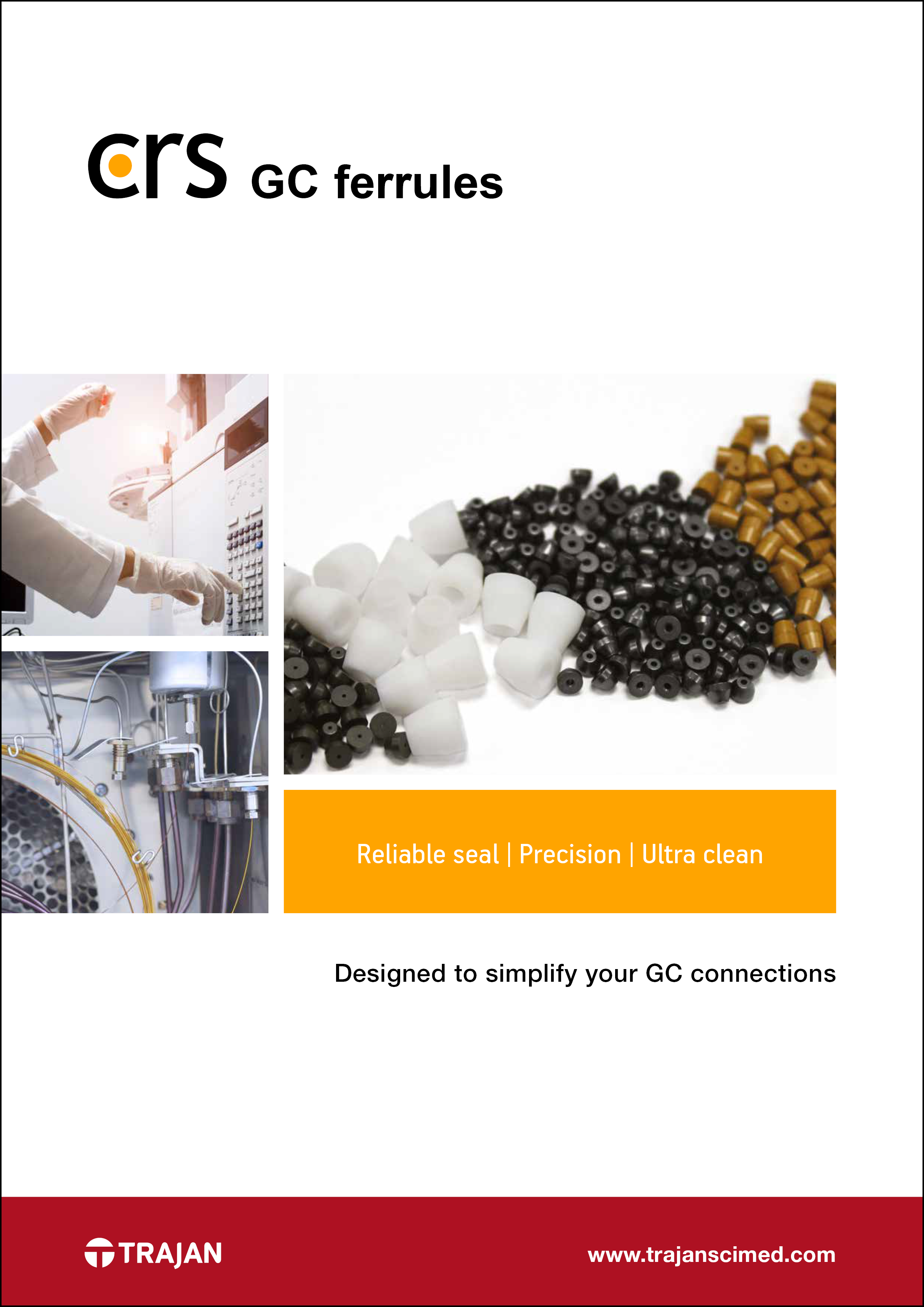
We manufacture a wide variety of standard and specialty ferrules and seals used in gas chromatographs and other instruments. The commonly used materials are Vespel®, PTFE, and exfoliated graphite.
The standard ferrule product line is used to seal tubing and capillaries to standard compression fittings in a variety of sizes.
Features and benefits
- Made from polyimide/graphite blended compounds.
- They seal with minimal torque and can be reused and repositioned along capillary columns if not over-compressed in the fitting.
- Due to slight shrinking at high temperatures, they must be retightened after initial temperature cycles to avoid leaks.
- Two types of Vespel/graphite are commonly used, one with 40% graphite and one with 15% graphite.
Recommended applications
They are ideal for GC/MS interface applications because they are non-porous to oxygen.
Product specifications
Graphite increases high-temperature tolerance, and reduces sticking and shrinking. They can be reused and repositioned along capillary columns if not over-compressed in the fitting. The 60/40 V/G blend will have the lowest chance of bonding. Because they are softer than 100% Vespel, only gentle force is needed to compress them and form a seal. They are both rated to 400°C.
The 60/40 blend has enhanced wear resistance, lower friction, and improved dimensional and anti-oxidation stability compared with the 85/15 blend, which is harder.
Vespel® is a registered trademark of DuPont.
More information:
1 product

Brochure - CRS GC ferrules
Collections: All, Analytical, Brochures, CRS GC ferrules, CRS graphite GC ferrules, CRS PTFE GC ferrules, CRS Vespel® GC ferrules, CRS Vespel®-graphite GC ferrules, GC connections, Introducing the CRS range of products to the Trajan portfolio, Literature - All, Literature - Analytical, Select by instrument - Analytical, Support items